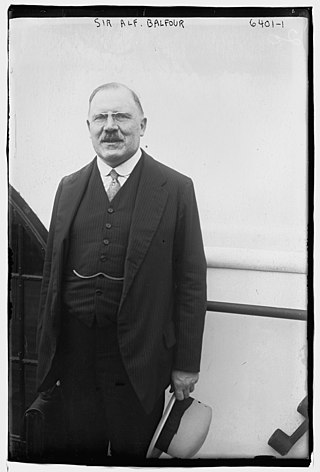
The National Security Act of 1947 was a law enacting major restructuring of the United States government's military and intelligence agencies following World War II. The majority of the provisions of the act took effect on September 18, 1947, the day after the Senate confirmed James Forrestal as the first secretary of defense.

A statutory instrument (SI) is the principal form in which delegated legislation is made in Great Britain.

The Home Office (HO), also known as the Home Department, is a ministerial department of the British Government, responsible for immigration, security, and law and order. As such, it is responsible for policing in England and Wales, fire and rescue services in England, visas and immigration, and the Security Service (MI5). It is also in charge of government policy on security-related issues such as drugs, counter-terrorism, and ID cards. It was formerly responsible for His Majesty's Prison Service and the National Probation Service, but these have been transferred to the Ministry of Justice.
A police authority in the United Kingdom is a public authority that is responsible for overseeing the operations of a police force. The nature and composition of police authorities has varied over time, and there are now just four dedicated "police authorities" in the United Kingdom, although the term can refer to various similar successor bodies.

The New South Wales Rural Fire Service is a volunteer-based firefighting agency and statutory body of the Government of New South Wales.

The London Fire Brigade (LFB) is the fire and rescue service for London, the capital of the United Kingdom. It was formed by the Metropolitan Fire Brigade Act 1865, under the leadership of superintendent Eyre Massey Shaw. It has 5,992 staff, including 5,096 operational firefighters and officers based at 102 fire stations.

The Electricity Act 1947 was an Act of the Parliament of the United Kingdom which nationalised, or bought into state control, the electricity supply industry in Great Britain. It established a central authority called the British Electricity Authority (BEA) to own and operate all public electricity generation and transmission facilities and created 14 area electricity boards with a duty to acquire bulk supplies of electricity from the central authority and to distribute and sell electricity economically and efficiently to industrial, commercial and domestic consumers. It vested 505 separate local authority and company owned electricity undertakings in the BEA with effect from 1 April 1948. The Electricity Act 1947 is one of a number of Acts promulgated by the post-war Labour government to nationalise elements of the UK’s industrial infrastructure; other Acts include the Coal Industry Nationalisation Act 1946; Transport Act 1947 ; Gas Act 1948; and Iron and Steel Act 1949.

The fire services in the United Kingdom operate under separate legislative and administrative arrangements in England and Wales, Northern Ireland, and Scotland.
The following outline is provided as an overview of and topical guide to firefighting:

The Fire Services Act 1947 was an Act of Parliament of the United Kingdom that reorganised fire services in the United Kingdom. It disbanded the National Fire Service and returned the responsibility for running fire services to local authorities.

The National Fire Service (NFS) was the single fire service created in Great Britain in 1941 during the Second World War; a separate National Fire Service was created in 1942.

The history of fire brigades in the United Kingdom charts the development of fire services in the United Kingdom from the creation of the United Kingdom to the present day.
The history of fire safety legislation in the United Kingdom formally covers the period from the formation of the United Kingdom of Great Britain and Ireland in 1801 but is founded in the history of such legislation in England and Wales, and Scotland before 1708, and that of the Kingdom of Great Britain from 1707 to 1800.

Arthur Balfour, 1st Baron Riverdale,, known as Sir Arthur Balfour and Sir Arthur Balfour, 1st Baronet, was a British steel manufacturer.

The Emergency Powers Act 1939 (EPA) was an Act of the Oireachtas enacted on 3 September 1939, after an official state of emergency had been declared on 2 September 1939 in response to the outbreak of the Second World War. The Act empowered the government to:
make provisions for securing the public safety and the preservation of the state in time of war and, in particular, to make provision for the maintenance of public order and for the provision and control of supplies and services essential to the life of the community, and to provide for divers and other matters connected with the matters aforesaid.

His Majesty's Government is the central executive authority of the United Kingdom of Great Britain and Northern Ireland. The government is led by the prime minister who selects all the other ministers. The country has had a Conservative-led government since 2010, with successive prime ministers being the then-leader of the Conservative Party. The prime minister and their most senior ministers belong to the supreme decision-making committee, known as the Cabinet.
The Ministry of Education (1944-1964) was a central government department governed by the Minister of Education, with responsibility in England and Wales for:
- Promoting the education of people;
- Developing educational institutions;
- Developing policy to provide a comprehensive educational service;
- Securing the effective execution of the education policy by local education authorities

Fire Rescue Victoria (FRV) is a fire and rescue service in the state of Victoria, Australia, that provides firefighting, rescue, HAZMAT and Emergency Medical Response services in areas of metropolitan Melbourne and major regional centres throughout Victoria.

The New South Wales Minister for Emergency Services is a minister within the Government of New South Wales who has the oversight of the emergency service agencies.














